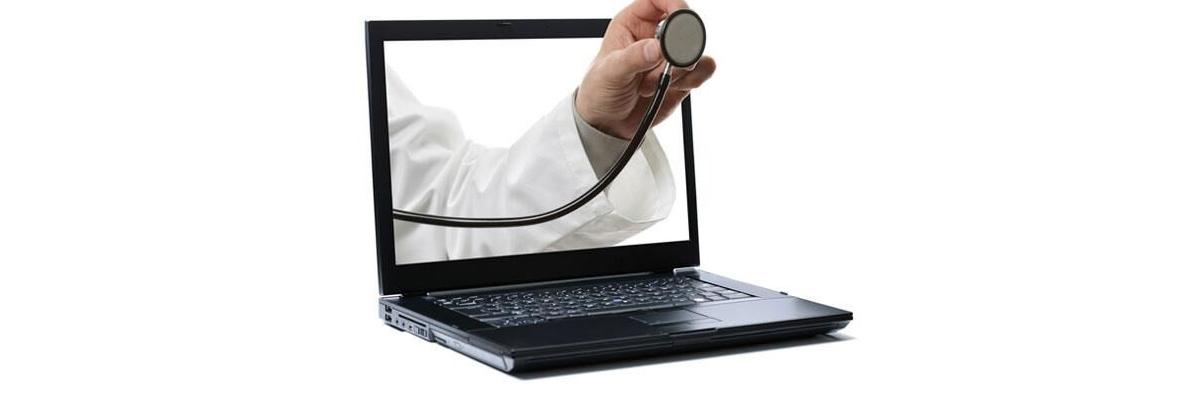Live
- Maruthi Dons Producer Hat again, He Ventures into Production with ‘Beauty’
- Viksit Bharat Ambassador: Participants hail the mission, urge to make it a ‘people-powered movement’
- Tharun Bhaskar and Eesha Rebba Join Forces in New Film
- Shahid Kapoor teases fans with BTS from ‘Deva’
- Popular Television Actress Divyanka Tripathi Injured in Accident
- Is Pooja Hegde Joining Jr NTR for an Item Number in 'Devara'?
- Zomato slapped with Rs 11.81 crore GST demand, penalty order
- Voters in NP Kunta express support to Kadiri MLA candidate B.S. Maqbool
- Dibyendu Bhattacharya shares his fascination for police officers
- Penukonda MLA Candidate Savithamma Celebrates Naidu's birthday
Just In

Patients who come to us imagining that they have some grave illness after they match their symptoms with those that they have read up on Google really test our patience I heard a doctor friend complain and not without reason Apart from excessive daily greetings with Chicken Soup for the Soul kind of messages,
“Patients who come to us imagining that they have some grave illness after they match their symptoms with those that they have read up on Google really test our patience.” I heard a doctor friend complain and not without reason. Apart from excessive daily greetings with ‘Chicken Soup for the Soul’ kind of messages, the most visible news and views available on social media related to health and a host of home remedies that prevent the onset of life-threatening diseases.
Diets and methods suggested for removing carcinogenic substances mentioned by self-proclaimed experts if followed not only threaten our sanity but leave us with holes in our pockets and have us shun everything we have been happily consuming for years. So, we have a good doctor tell us that wheat is no less than poison for diabetics and another lecture us on the deadly repercussions that they will face if they eat rice.
Apart from various shades of black, brown and red rice suggested we have the ‘gluten-free’ experts, the ‘millet masters’ and ‘keto- diet’ champions. As experts on social media advocated the use of coconut oil for weight loss, control of diabetes and thyroid disorders, we saw academics from universities across the world argue endlessly for and against its use, setting aside other important issues.
Avowed social media addicts have been gradually turning into Hypochondriacs or people who excessively obsess about their health and look for medical solutions even when they are not required. “For Hypochondriacs, the internet has absolutely changed things for the worse,” says Brian Fallon, MD, Professor of Psychiatry at Columbia and co-author of ‘Phantom Illness: Recognizing, understanding and overcoming Hypochondria’.
So far, no studies have been made on how hypochondriacs use the internet according to Fallon, but the phenomenon is common enough to attract the snappy name ‘Cyberchondria’. Although it is often perceived as harmless, Hypochondria can develop into a major obsession and result in spending excessively on unnecessary consultations and medical tests.
Now, these are the half-baked patients, who use their cyber knowledge to create false alarms. Doctors often accused of prescribing unnecessary tests have really no choice but to go for diagnostic tests to calm their nerves and assure them that ‘all is well’.
Apart from this breed, there are those influenced by WhatsApp group forwards about various methods to stay fit and stress-free. I was shocked to see the long list of ‘dos’ adopted by a friend who spent four hours every morning catering to exercise, consumption of healthy foods, meditation and prayer. Oil pulling with gingelly oil, consumption of a pod of raw garlic, pepper, lime juice with warm water and honey was followed by prayer. Here lies the twist. This was no normal chanting being done. As per the instruction he had received in the group, he kept both his palms filled with salt which was to be discarded after chanting the name of the deity he worshipped 108 times.
We do not know if he is ‘fighting fit’ but his wife is convinced that this is a ploy to avoid all arguments that can come up during conversations and escape responsibility on the domestic front. This regimen I suspect will continue till the next great social media revelation. Lapped up by us screenagers (the new name for all those who need to have a screen before them) ‘Cyberchondria’ is a disease we have to live with.

© 2024 Hyderabad Media House Limited/The Hans India. All rights reserved. Powered by hocalwire.com







